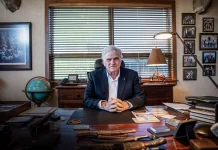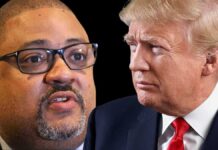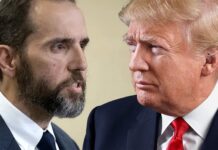U.S. District Judge Aileen Cannon canceled a scheduled Aug. 25 hearing and ordered a sealed hearing on a request for a protective order under the Classified Information Protection Act (CIPA) in a case the U.S. Department of Justice (DOJ) brought in Florida against former President Donald Trump, his aide Waltine Nauta, and his Mar-a-Lago property manager, Carlos De Oliveira, for allegedly mishandling classified documents. All three have pleaded not guilty.
The hearing “will take place at a designated time and place to discuss sensitive, security-related issues concerning classified discovery,” she wrote in the Aug. 17 order.
She ordered that any motion for a protective order to Mr. de Oliveira needs to be filed by Aug. 22 for consideration during the sealed hearing, at which defendants aren’t required to appear.
Classified Information
Last month, special counsel Jack Smith requested a protective order to restrict the information President Trump’s defense lawyers are able to share with him and his co-defendants.
“This case involves classified information,” the July filing reads. “When classified information is involved, protective orders are to be issued whenever the government discloses classified information to a defendant in connection with a prosecution.”
President Trump opposed any order that would prevent discussing the case with his legal team and asked for the approval of a secure location to do so.
He has asked for a sensitive compartmented information facility (SCIF) to be restored at his Mar-a-Lago resort so that he and his legal team can discuss the classified information in the case regularly. There was previously one established, his lawyers said in an August filing, noting that the secure location has 24-hour security protection and that they would use the space to discuss but not review classified information.
Mr. Smith’s team argued against the motion, calling it “extraordinary” and claiming that President Trump was seeking “special treatment that no other criminal defendant would receive and that is unsupported by law or precedent.”
President Trump’s team refuted the characterization that their request was “based on ‘inconvenience.'” Given the security protocol for his travel, the “hurdles and costs” would make it “virtually impossible” for the legal team to discuss the case with their client otherwise, they said.















































